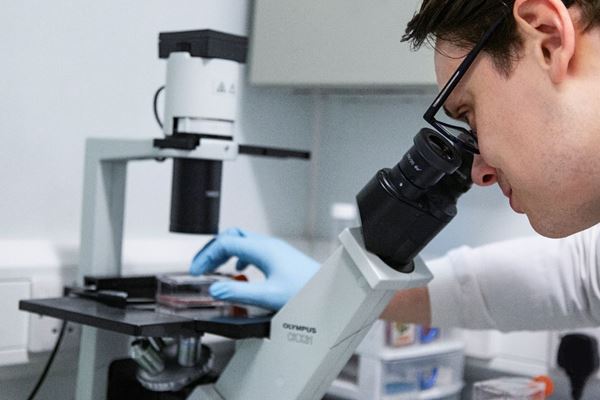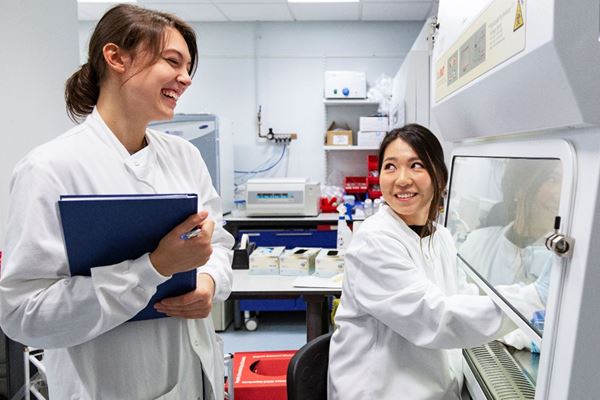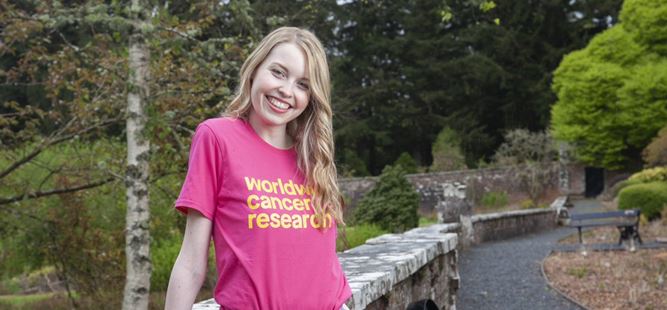Our impact: Helping to develop new blood cancer drugs
10th November 2020
In 2004, we funded a project led by Professor Mark Cragg at the University of Southampton to further our understanding of how drugs could be used to target and destroy cancer cells. His research uncovered important information that contributed to the journey of a targeted cancer drug, which is now available as a treatment option for people with blood cancer.
Thanks to advances in diagnosis and treatment, 12 out of 20 people with blood cancer in the UK will survive for 10 years or more. This is a massive improvement from the 1970s when for many blood cancers only 1 in 20 survived their diagnosis for 10 years or longer.
For many years, the main treatment option for people with blood cancer was chemotherapy. Different combinations of these toxic drugs were pitted against each other to find the most effective regimen. But whatever combinations doctors used, many patients could still not be saved. We needed kinder, more effective treatments.
Then a new shining star appeared - a drug called rituximab. Rituximab targets a molecule that coats the outside of cancer cells – a molecular flag that identifies it as a cancer cell. In combination with chemotherapy, doctors started to see remarkable results. Suddenly patients survived for longer and with better quality of life.

Targeting blood cancer cells
But even with these advances, only a small fraction of patients remained cancer-free. For many people, their cancer would return until it had taken over the patient's entire body.
But scientists were not willing to give up. They returned to the lab to start new research that could improve how these treatments work.
Rituximab works by attaching to a molecule called CD20 found on the surface of certain blood cells. Some blood cancers cells have many more of these CD20 molecules on their surface than normal cells, making the cancer cells stand out from the crowd. When rituximab attaches to the cancer cells, it flags them for destruction.
Unfortunately, many cancers become resistant to the drug over time, rendering treatment useless. So scientists started working out how to get one step ahead and engineered an upgraded version of rituximab. This “version 2.0” still worked by attaching to the CD20 molecule, but it killed cancer cells in a different way.

One step of the journey
Thanks to our supporters, researchers such as Professor Mark Cragg at Southampton University were able to advance our understanding of these new drugs. His research demonstrated they were more powerful than rituximab, paving the way for clinical trials.
Armed with a better understanding of how these drugs worked, scientists were able to continue to improve on their design. This led to the discovery of a new CD20 targeting drug called obinutuzumab, In clinical trials, obinituzumab was found to help patients live longer, even when they had developed resistance to other treatments. Following these clinical trials, obinutuzumab was approved in the UK in 2015 for the treatment of certain leukaemias.
Research involving obinutuzumab has continued and doctors can now use the drug to treat other types of blood cancer, including chronic lymphocytic leukaemia and advanced follicular lymphoma.
The work we supported is a small piece of the puzzle that this story represents. But it is an important contribution that helped to complete the picture. This is what science is all about – teamwork. Everyone is chipping in, gathering knowledge together in a pursuit of a larger goal. By supporting research – whether as a supporter, a scientist, or a charity that funds research – we all play an essential part in finding new cures for cancer.

It can take decades to go from that first discovery in the lab to a new treatment or cure for cancer. Breakthrough's like this are only possible thanks to the kindness and generosity of people like you. Join our Curestarter community today and help us start the cancer cures of the future.
Become a Curestarter
Further reading

I celebrated my two-year cancer-free milestone and I'm looking forward to the future
Eilidh was just 14 when she was diagnosed with cancer for the first time. Now cancer-free, she's raising awareness for the need for more cancer research.
01 September 2021

New cancer drug could help people with multiple myeloma
Scientists have discovered that a new drug could help overcome treatment resistance in advanced cases of multiple myeloma.
13 April 2020

Could somebody be hiding the cure for cancer?
A myth that we often hear is that there’s already a cure for cancer, but it’s being hidden. Our experts explain why this isn't the case.
25 March 2020
